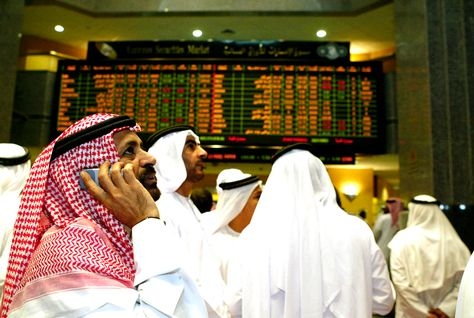The Saudi stock market showed solid performance in August, half of which was marked by the fasting month of Ramadan and Eid Al-Fitr holidays. During the month, the Tadawul All-Share Index (TASI) closed at 7,139.01 points, gained 260.82 points or 3.79 percent over the close of the previous month, according to Tadawul's Monthly Statistical Report.
On an YTD basis, TASI registered a positive increase of 11.24 percent (721.28 points). Highest close level for the index during the month was 7,139.01 as on Aug. 29.
"August clearly was a reasonably good month for Tadawul, highlighting the relative absence of major stress in the global markets and the strong domestic growth drivers," Jarmo T. Kotilaine, chief economist at the National Commercial Bank, said.
The report said total equity market capitalization at the end of August reached SR 1.42 trillion ($ 378.33 billion), increased by 3.58 percent over the close of the previous month. The total value of shares traded for the month of August reached SR 102.80 billion ($ 27.41 billion), decreasing by 26.07 percent over the previous month. "The low value of trading was naturally largely seasonal and hence nothing out of the ordinary," Kotilaine added.
The total number of shares traded reached 4.11 billion in August compared to 6.64 billion shares traded for the previous month, decreasing by 38.03 percent. The total number of transactions executed during August 2012 reached 2.30 million compared to 3.37 million trades for the month of July 2012, decreasing by 31.87 percent.
The outcome of the euro zone crisis and the direction of the oil prices by the end of this year will determine the direction of the Tadawul index
The number of trading days in August was 16 as against 23 trading days during July, the report said.
About the future direction of Tadawul, Basil Al-Ghalayini, CEO of BMG Financial Group, said: "Depending on the performance of the international markets, the outcome of the euro zone crisis and the direction of the oil prices by the end of this year will determine the direction of the Tadawul index. On the other hand, the regional geopolitical development will have a shorter term impact on the index."
Al-Ghalayini said sectors to watch during the last quarter of 2012 include petrochemicals, banking, cement and real estate development in view of the mortgage law implementation.
However, Kotilaine said the future direction of global monetary policy is increasingly clearly emerging as a key factor determining the direction of the Saudi and indeed global equity markets going forward.
A significant turn toward greater unconventional monetary easing by the US Federal Reserve and the European Central Bank would almost certainly ensure a degree of market stability and at least somewhat curb risk aversion by reducing the perceived probability of major economic discontinuities and demand erosion with respect to key commodities such as oil.
By injecting more liquidity into the system, quantitative easing has tended to boost real asset values
"By injecting more liquidity into the system, quantitative easing has tended to boost real asset values, although its relative effectiveness may well be less this time. Such optimism would support the oil price and thereby the petrochemicals sector. But its benefits should be relatively broad based," Kotilaine added.
In the absence of additional stimulus and in the event of an abrupt deterioration in the global economic conditions, Kotilaine said the strong fundamentals of the Saudi economy would continue to underpin the market to a degree but primarily in the area of domestically focused companies with limited external exposure.
Arab News
6 September






































































